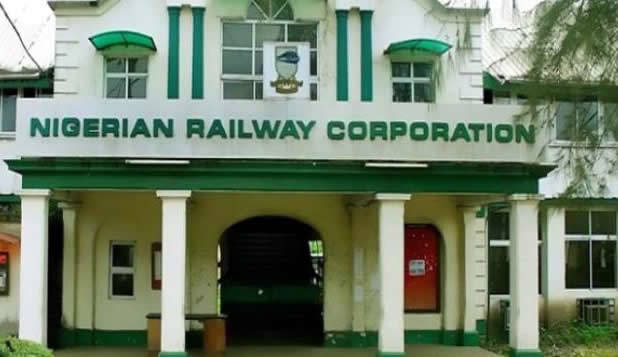These are unusual times for the Nigerian common man. With every sphere of our existence already being threatened under the current COVID-19 realities, escalated hardships from the pandemic by any stretch, only increase the vulnerability of the poor in particular.
It is disturbing that, for this group, access to ordinary benefits is being truncated or entirely dislodged. Railway services offer ordinary opportunities for ordinary people, for societies desirous of advancing their welfare and wellbeing. In his foreword to Francis Jaekel’s book, ‘The History of Nigerian Railway’, former Head of state and statesman, Gen. Yakubu Gowon, had written that, “It was railways that made it possible for people to move at relatively no cost over long distances for trade and other occupational pursuits”.
The world over, railways have remained the critical driver of development for ease in the movement of a large number of people and in conveying bulky items between and across locations. Importantly, access to railway services has been greatly encouraged by its relatively low cost, compared to other means of transportation, particularly, air and road.
It is in this light that the launch of the Abuja-Kaduna rail line, Nigeria’s first ever standard gauge Rail track, may have been framed by the average Nigerian. The Abuja-Kaduna segment, funded partly by China’s EXIM Bank, was commissioned in July, 2016 as a partial fulfillment of the long awaited railway modernisation of the 1,124km narrow-gauge from Lagos to Kano.
The concessionary deal, estimated at $8.3bn was awarded to the Chinese Civil Engineering and Construction Company (CCECC) in 2006. The project, among other benefits, secures a one-hour travel time between the two cities for about 5,000 commuters, while 800 tons of goods will travel the same route for an hour and half for cargo. The CCECC is not new around here.
Its current engagement is the second coming after a botched interest in the Nigerian Railways in 1996 under the then General Sani Abacha regime. Before it, the Rail Indian Technical Expert Services (RITES), contracted decades earlier in an equally short-lived partnership with Nigerian government was not as lucky on a second voyage on Nigeria’s tortuous railway journey.
For too long it had seemed that modern, effective and affordable railways were not realisable in Nigeria, following several policy reviews piling dust, including the famous ambitious Ojo Maduekwe’s 25 years Strategic Vision; until President Muhammadu Buhari unveiled the Abuja-Kaduna tracks to signal a new dawn.
At the epoch flag-off, President Buhari assured us that, “the train service will provide the much needed alternative transport link between the Federal Capital Territory and Kaduna State, a corridor which has huge potential for industries, agricultural activities and a growing labour force” in his hope that, “those good old days will soon be back with us and indeed in a more prosperous way”. The historic event may not have been as remarkable as the president’s speech would, for a project we clearly understand that he inherited for completion from previous administrations. The marker, for Nigerians is clearly not the railways being launched but for whose benefit? Incidentally, four years after, an upward review of fares for the Abuja-Kaduna railway service is being contemplated across all passenger categories by 100%.
The Nigerian commoner will now pay between N2, 600 and N3, 000. The same review may apply to rail services in other parts of the country, particularly Lagos-Ibadan. The move, we hear, is to complement the cut in passenger capacity by nearly half, in observance of COVID-19 protocol, as the services resume following gradual ease of restrictions from lockdown. The proposed increase sadly follows an avalanche of misfortunes trailing the common man beyond Kaduna and Abuja.
It is complementing the recent hike in fuel prices among other general rising costs of living. Yet again, it reinforces Nigeria’s contradictions in the habitual stripping of the little left for the benefit of the critical mass. Rail services subscribers are mainly ordinary workers and indigent citizens. Not in Nigeria. Even before COVID-19, the raging spate of banditry along Abuja-Kaduna road returned the elite class to dispossessing the critical masses who do not have capacity to compete for ticket hoarding and racketeering, as widely reported from the failure of the operators to automate their services after three years. China already evolved a rail network of 10, 000km exceeding the entire European Union by 2013 modelling it after Japan’s Shinkansen high-speed system in a gradual 15-year rolling plan, without hurting the poor. India, even in the face of an inevitable fare increase in rail services from January, 2020, articulated an incentive-driven peak and lean periods costing, and designed segregated fare components which offer concession for elder citizens and children, including Leave fares concession for public workers.
Evidently, it is not in our governance character to complement a policy review with relief for the poor. This, too, as pronounced by Transportation Minister, Rotimi Amaechi, might not be any different. Long before public airlines met their inevitable death in Nigeria, the systematic withdrawal of government from road transportation had been initiated. Today, we are all at the mercies of a profit-driven private sector. It is hoped that, this new burden on the Abuja-Kaduna rail traveler will challenge the morality of the Buhari administration and should provoke the president’s conscience, by that token. Thankfully, the Honorable Minister declared while hinting of the review that, “we will need to talk to Mr. President before moving ahead”. When the talk meets the president, his response, we pray, should reflect a relief for the poor, before railways too will alienate us.
Sa’id writes from Hayin Danmani, Kaduna, Kaduna State

 Join Daily Trust WhatsApp Community For Quick Access To News and Happenings Around You.
Join Daily Trust WhatsApp Community For Quick Access To News and Happenings Around You.



